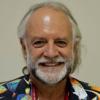
Professor Peter H Abrahams
Life Fellow
Medicine has a strong tradition in Girton. Our aim is for our graduates to be caring, kind and empathetic doctors, who are knowledgeable, reliable and trustworthy, with a robust scientific background. There is a large and supportive medical fellowship; the fellows in Medicine cover a range of disciplines, helping to prepare the students to be the doctors of tomorrow, in whatever branch of medicine they choose.
Girton has a reputation as a friendly and inclusive college and this is clear both within the medics’ community and across College. The Fellows take a great interest in developing the students’ abilities. It is an ideal environment to stretch yourself, with a background of support in all the transitions; from school to university, from Part I to Part II, from undergraduate to clinical school and into a career.
Girton’s Medical Fellowship is made up of both a large number of academic clinicians across different specialities and other experts in their fields.
Our strong and varied Fellowship is enriched by a number of distinguished Honorary Fellows, whose experience and lifetime contributions to medicine have been recognised both nationally and internationally. Amongst them are Professor Dame Lesley Regan, Dr Suzy Lishman CBE, and the former Prime Minister of Australia, Ms Julia Gillard AO.
Students have the opportunity to meet with and learn from these, and other major figures in the wider medical world. We encourage our students to play a full part in the ongoing development of academic life at Girton College.
The University of Cambridge offers one of the largest pre-clinical medical courses in the UK, by admitting over 300 students each year.
The course in Cambridge differs significantly from other universities: during the first two years, the full range of basic biomedical and pre-clinical science is taught. This covers almost all the material necessary for the 2nd MB examination.
The third year then offers an excellent opportunity to specialise in one of the subjects from the Natural Sciences Tripos Part II. Some courses offer the chance to do project work and scientific research under supervision.
After the third year, students graduate with a BA degree and move on to a three-year clinical training programme which is based at the Clinical School at Addenbrooke’s Hospital in Cambridge.
We’re proud of the calendar of events that support and foster our medics, kicking off each year with the Medics Supper party. In the beautiful setting of the Fellows Dining Room where all undergraduate medics, the Fellowship, former students and distinguished guests join together to celebrate and foster cohesion and strong supportive links between years.
The Hammond Science Communication competition and evening, hosted by Dr Phil Hammond (Girton alumnus and ‘celebrity’ Doctor), sees undergraduate students present their interpretation of a theme chosen each year, such as Imbalance, accompanied by drinks in the stunning Stanley Library.
The College hosts its Annual Medical and Vet symposium, providing an opportunity for students to present their research work alongside eminent College and external speakers, and is followed by a black-tie dinner in the Great Hall (Dining Hall).
The student-led medic and vet society run invited talks with food and drink provided throughout the year, with recent talks on Forensic psych, history medicine, and cutting-edge research.
Additionally, social events occur each term, fostering a close-knit community.
The whole Girton medical community celebrates the end of exams together, with a standing invite and party at one of the Fellows' homes.
And each June before the Clinical School Declaration Ceremony, the graduating students alongside their families meet with the Mistress, Medical Fellowship and Senior Tutor for a celebratory brunch.
As you may have read on the University of Cambridge website for medicine every week you will have College-based supervisions or small group tutorials to support your learning. We are very lucky at Girton as we have a stable group of experienced supervisors, many of whom are practising clinicians.
Girton has an ideal number of medical students which is small enough for us to get to know you individually, and support you with any specific needs, but large enough to enable stimulating discussions and a wide variety of social medical events.
In addition to the general support activities in Girton, such as the Skills Programme and library activities, by getting to know you from the very beginning we will support you over the six years you will be in Cambridge.
As well as pastoral support, including aspects of professionalism, and academic support, we have a number of Girton initiatives to help you in many different ways.
There are financial grants available for students in hardship and all medical students are able to apply to the Harry Barclay Fund for medical activities and the Dinah James bequest for global health. Find out here.
There is money available for academic support to attend scientific conferences, and also other travel grants for the vacation.
For more information about financial support:
This community supports, encourages, and enables students to excel in their studies and beyond. A significant number of small group supervisions are provided by our Fellows, who are research active and many play wider roles in the provision of medical education in Cambridge and more widely, alongside medical leadership at a national level.
We also offer advice about applying for research projects over the summer and additional grants for projects.
Some of our medical students have successfully completed the MBPhD scheme.
The majority of those reading Medicine go on to practice, be it in hospitals or as GPs, while a number make a significant contribution in terms of their scientific research. Some work overseas – either in voluntary or research work. Some go into policy making and public health. Whatever they choose, we hope they will all be ‘good doctors’.